Planets
-
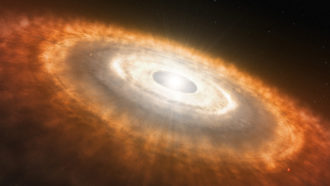 Planets
PlanetsGlass beads help scientists puzzle out how baby planets grow
Researchers have mimicked the first stages of planet formation in the lab. All they needed were glass beads and a catapult.
-
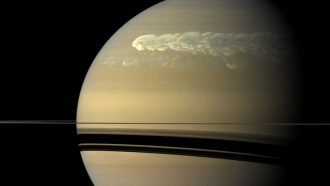 Planets
PlanetsAstronomers spot new type of storm on Saturn
These storms are bigger and longer lasting than squalls but not nearly as massive as this planet's Great White Spots.
-
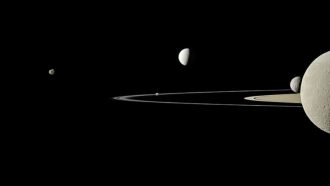 Planets
PlanetsSaturn now reigns as the solar system’s ‘moon king’
Saturn now boasts at least 82 moons, surpassing Jupiter’s 79 natural satellites.
By Sofie Bates -
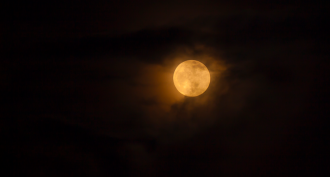 Planets
PlanetsDoes the moon influence people?
Unless you believe in werewolves (and you shouldn’t), there are few compelling data to suggest the moon has a big effect on people.
By Erin Wayman -
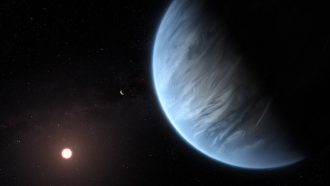 Planets
PlanetsSpotted: An exoplanet where it might rain
A planet outside the solar system appears to have clouds with liquid water.
-
 Planets
PlanetsPhysics Nobel rewards discoveries on cosmic evolution and exoplanets
This trio of scientists helped figure out the makeup of our universe. Two of them also identified the first known exoplanet orbiting a sunlike star.
-
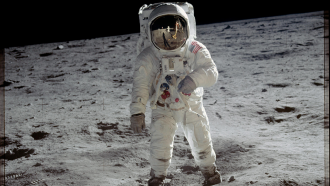 Space
SpaceLearning from what Apollo astronauts left on the moon
In the 1960s and ’70s, Apollo astronauts left trash, mementos and science experiments on the moon. Researchers want to study and preserve the relics.
-
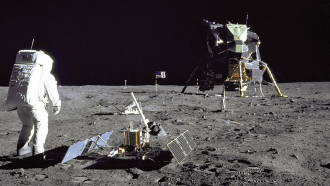 Planets
PlanetsPreserving remnants of human culture on the moon
Artifacts left behind by lunar landings have value to research and human history. Scientists now want to preserve those cast-offs while also learning from them.
-
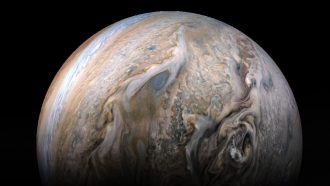 Planets
PlanetsStudents help name 5 of Jupiter’s newly discovered moons
Astronomers announced discovering 12 new moons of Jupiter in July 2018. Five of them now just been named for goddesses and spirits of Greek and Roman mythology.
-
 Planets
PlanetsWelcome to moon rock central
A Science News reporter’s visit to NASA’s moon-rock lab shows the hyper-pristine conditions in which these rocks are kept — and why that’s so important.
-
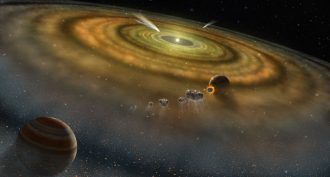 Planets
PlanetsWhat do you call a moon that escapes its planet? A ‘ploonet’
Giant planets in other star systems might lose their moons, creating new planets. And if moons do go rogue, current telescopes may be able to find them.
-
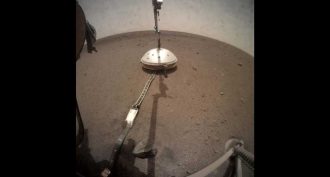 Planets
PlanetsWas that a Marsquake?
‘Marsquakes’ could help scientists learn more about the Red Planet’s inner activity.